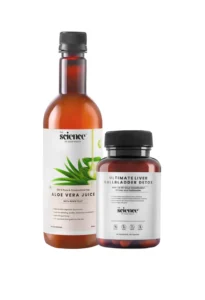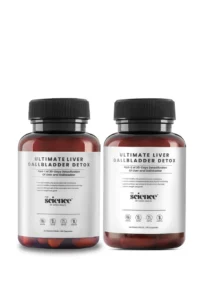Is beer good for liver health? The direct and evidence-based answer is no, beer is not good for your liver. Whether consumed occasionally or regularly, beer contains alcohol, which the liver must break down, and this process puts stress on the organ. Over time, alcohol consumption leads to fat buildup, inflammation, and in some cases permanent scarring of liver tissue.
Many people believe beer is harmless compared to whiskey, vodka, or rum. Some even assume that because beer contains fewer units of alcohol per serving, it is somehow “safer.” The truth, supported by medical research, is that the liver does not differentiate between alcohol sources. Beer may feel lighter, but its alcohol content still poses risks.
This article explores in depth the role of the liver, what science says about alcohol consumption, common myths about beer, and practical tips to safeguard liver health. By the end, you will have a clear answer to the question: is beer good for liver?
Understanding the Liver’s Role in Your Health
Before asking is beer good for liver, it is important to understand why the liver plays such a central role in your overall well-being.
The liver is the body’s main detoxifying organ. Everything you eat, drink, or absorb through your digestive system eventually passes through the liver. It processes nutrients, removes toxins, and regulates metabolism. Some of the most important functions include:
- Detoxifying harmful substances, including alcohol, drugs, and environmental toxins
- Storing vitamins and minerals such as iron and vitamin A
- Producing bile that is essential for fat digestion and nutrient absorption
- Converting carbohydrates into glucose and storing it for energy
- Breaking down proteins and balancing hormones
- Supporting the immune system by helping to fight infections
Because the liver is responsible for metabolizing alcohol, it is also the first organ to suffer when alcohol is consumed frequently. Even small amounts of beer can create oxidative stress in liver cells, which eventually causes fat buildup and inflammation. If left unchecked, these issues can progress to alcoholic hepatitis or cirrhosis, which are life-threatening conditions.
Beer and the Liver: What Science Says
The next big question is is beer good for liver when consumed moderately? Many people assume that one or two beers after work cannot do much harm. To answer this, let us look at the components of beer:
- Alcohol: The key element that damages liver cells and causes long-term scarring
- Carbohydrates: Excess carbs in beer contribute to obesity, which worsens fatty liver disease
- Antioxidants: Beer does contain polyphenols, but their minimal health benefits cannot outweigh the harmful impact of alcohol
Medical research confirms that beer has no real benefit for liver health. According to the World Health Organization, there is no truly safe level of alcohol consumption. The Journal of the American Medical Association also highlights that even moderate drinking increases the risk of liver fibrosis.
Moderate drinking is often defined as one drink per day for women and two drinks per day for men. However, it is important to understand that this definition is not the same as being risk-free. Even within those limits, liver cells are exposed to alcohol and begin to show early signs of stress. Over the years, these effects accumulate and can turn into disease.
Therefore, the scientific conclusion is clear: beer is not good for your liver. At best, occasional intake may not cause immediate harm, but it never provides a health benefit.
Is Beer Good for Liver? Myths vs. Facts
There are many misconceptions that make people believe beer is somehow less harmful. Let us examine the most common myths and the truth behind them:
- Myth 1: Beer is safer than hard liquor
- Fact: The liver does not distinguish between different forms of alcohol. A pint of beer carries as much risk for the liver as a shot of whiskey when alcohol content is equal.
- Myth 2: Small amounts of beer improve digestion and prevent liver disease
- Fact: There is no scientific proof that beer supports liver function. On the contrary, alcohol slows digestion and overworks the liver.
- Fact: There is no scientific proof that beer supports liver function. On the contrary, alcohol slows digestion and overworks the liver.
- Myth 3: Only heavy drinkers suffer from liver disease
- Fact: Fatty liver can develop in social drinkers and people who consume small amounts regularly. Alcohol-related liver disease does not require heavy drinking to begin.
- Fact: Fatty liver can develop in social drinkers and people who consume small amounts regularly. Alcohol-related liver disease does not require heavy drinking to begin.
Each of these myths contributes to the false belief that is beer good for liver. The evidence shows that beer is never beneficial and always carries risk.
Beer and Fatty Liver: A Dangerous Mix
One of the most common liver conditions today is non-alcoholic fatty liver disease, which occurs when fat deposits build up inside liver cells. When alcohol like beer is added to the equation, the risk multiplies.
Here is how beer worsens fatty liver:
- Beer contributes to weight gain, which directly fuels fat accumulation in the liver
- Alcohol metabolism produces toxic byproducts that inflame liver tissue
- Drinking beer regularly accelerates the transition from simple fatty liver to fibrosis, cirrhosis, or even liver cancer
The progression of fatty liver disease is often described in stages:
- Stage F0: Normal healthy liver
- Stage F1: Mild scarring begins
- Stage F2: Moderate scarring and reduced function
- Stage F3: Severe scarring with major functional loss
- Stage F4: Cirrhosis, where permanent damage has occurred
Beer drinking speeds up this progression. For people already diagnosed with fatty liver, even one beer can worsen inflammation and accelerate damage.
How Much Beer is Too Much?
When exploring is beer good for liver, many people ask if there is such a thing as a safe quantity.
One standard drink is defined as 355 ml or 12 ounces of beer containing 5 percent alcohol. This is the equivalent of a small bottle or a pint glass.
Guidelines for moderate drinking are:
- Women: One beer per day at most
- Men: Two beers per day at most
Anything beyond this amount significantly increases the risk of liver damage. Binge drinking, which means consuming several beers in a single sitting, is especially dangerous because it floods the liver with toxins it cannot process at once.
Medical experts caution that while these limits are commonly mentioned, they do not guarantee safety. People with fatty liver, hepatitis, or a family history of liver disease should avoid alcohol altogether. In their case, even one beer is too much.
Protecting Your Liver Health
If you are worried about whether is beer good for liver, the best step forward is to focus on protecting liver health. Here are practical and natural ways to keep your liver strong:
- Stay hydrated by drinking plenty of water to support detoxification
- Eat a balanced diet rich in fresh fruits, vegetables, and whole grains
- Include lean proteins and healthy fats like fish, nuts, and olive oil
- Avoid excessive sugar, refined carbohydrates, and processed foods
- Exercise regularly to prevent obesity and reduce fat buildup in the liver
- Get regular liver function tests if you drink alcohol
- Replace beer with non-alcoholic alternatives such as sparkling water, kombucha, or herbal teas during social gatherings
Your liver health defines your overall vitality and energy. If you are struggling with fatty liver, low energy, or chronic health issues, the answer does not lie in relying on occasional beer or quick internet searches. Take control of your health journey today. Smriti Kochar’s Ultra-Wellness Program offers a 100 percent natural and medicine-free transformation. It has helped countless individuals reverse chronic conditions, improve liver function, and achieve a healthier lifestyle.
Start Your Healing Journey Now
Final Verdict: Is Beer Good for Liver?
The verdict is simple: beer is not good for your liver.
For healthy individuals, an occasional beer may not cause immediate harm, but it never offers a health benefit. For people with fatty liver, hepatitis, or any liver-related condition, beer directly worsens the disease and should be completely avoided.
The reality is that all forms of alcohol damage liver cells. Beer may feel lighter and less intoxicating, but its impact on the liver is the same as stronger drinks once alcohol levels are compared.
If you truly value your long-term health, avoiding beer and choosing healthier lifestyle habits is the safest choice. The next time you ask yourself is beer good for liver, remember that moderation reduces risk, but abstinence protects your health completely.
Read Our Latest Blogs
Is An Enlarged Liver Dangerous | How To Clean Liver Naturally | Is Grade 2 Fatty Liver Dangerous | How To Detox Liver Naturally At Home | Is Eggs Good For Fatty Liver | What Is Grade 1 Fatty Liver | What Is Sgpt In Liver | Is Curd Good For Fatty Liver | Is Milk Good For Fatty Liver | Is Sugarcane Juice Good For Liver | Is Coconut Water Good For Liver
Frequently Asked Questions
No, beer is not good for liver health even if consumed occasionally. While occasional intake may not cause immediate visible harm, the liver still has to process alcohol and this adds to its long-term stress.
No, beer is not safer than whiskey or vodka. The liver processes all types of alcohol in the same way. The key factor is the total alcohol consumed, not the type of beverage.
Drinking beer with food may slow the absorption of alcohol, but it does not reduce its harmful effect on the liver. The liver still metabolizes the alcohol fully, and the damage remains the same.
No, beer is very harmful for individuals with fatty liver. Even small amounts accelerate fat accumulation and inflammation, worsening the disease.
Beer does not detoxify the liver. In fact, it has the opposite effect, overloading the liver with toxins that require extra work to process.
Non-alcoholic beer is safer because it contains little or no alcohol, but it still has sugars and calories that may affect liver health indirectly.
Beer does contain some antioxidants, but the small benefits are overshadowed by the harm caused by alcohol. The antioxidants can be obtained safely from fruits and vegetables instead.
Even in moderation, beer is not good for liver health. Medical studies confirm that there is no truly safe level of alcohol consumption, and risk remains present.





